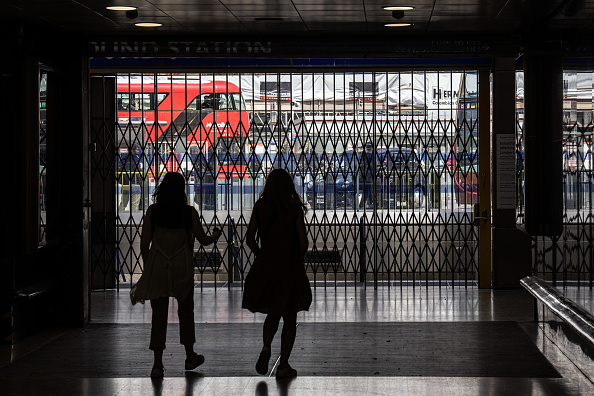Rail strikes ‘cost £500m to the economy’ as Nightcap boss says action ‘decimating’ bars

Ongoing railway strikes have cost the UK economy £500m this year, with businesses pleading with unions and bosses to find a solution to the disruption.
“If we don’t get the services restored I’m worried people will give up on rail,” newly-appointed rail minister Huw Merriman told the Railway Industry Association’s conference on Thursday.
“That would be no good [for the sector] but also no good for the members of the trade unions,” Merriman said, as first reported by The Times.
His remarks were echoed by cocktail bar operator Nightcap’s chief executive Sarah Willingham, who said the strikes were “absolutely decimating” hospitality businesses.
Many high street businesses would be forced to call last orders going into 2023, she told CityA.M.
“A lot of that will be as a direct result of what’s happening at the moment,” she said, as strikes were having “the biggest impact” on hospitality amid a litany of macroeconomic pressures.
Willingham, who heads the Cocktail Club and Barrio chains, called on the government to intervene and “find a solution”, saying she was sympathetic with the concerns of railway workers.
Union Aslef announced further industrial action at the likes of Avanti West Coast and London Overground as part of a long-standing dispute over pay.
The union’s general secretary Mick Whelan called on the operators “to make a proper pay offer so that our members can keep up with the cost of living.”
“We don’t want to be taking this action,” Whelan said. “Withdrawing our labour is always a last resort for a trade union.”
Members of the unions RMT and TSSA decided to call off their strike at the eleventh hour last week.
Merriman, who until late October headed the Commons’ transport select committee, said the government had changed tone when it came to the relation with union leaders.
Relations between unions and former transport secretary Grant Shapps were notoriously tense, as unions accused him several times of blocking negotiations with train operators.
Both the former secretary and the Department for Transport have always rebutted the accusations.
“We understand they have their members to represent but we do badly need to see this actually come to an end,” Merriman added.
Business groups have urged all parties to come together on a resolution, after several weekends of strike action this year.
UKHospitality chief executive Kate Nicholls described the most recent round of rail strikes as resulting in “a week of misery for both businesses and commuters” this week.
Pubs and restaurants, who are already facing an existential threat due to mounting costs, “continue to lose customers who can’t travel and they struggle to serve the ones that do visit, due to staff being unable to get into work,” Nicholls said.
Footfall in cities continues to be “well down” on pre-Covid levels and “stifling that even further through strikes is incredibly damaging to businesses,” she said.
The trade body leader said it was critical for all parties to hash out a resolution to “ensure further rail and tube strikes are avoided at all costs.”
The Rail Delivery Group was approached for comment by CityA.M.